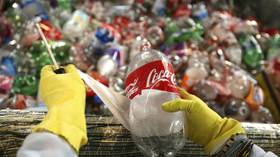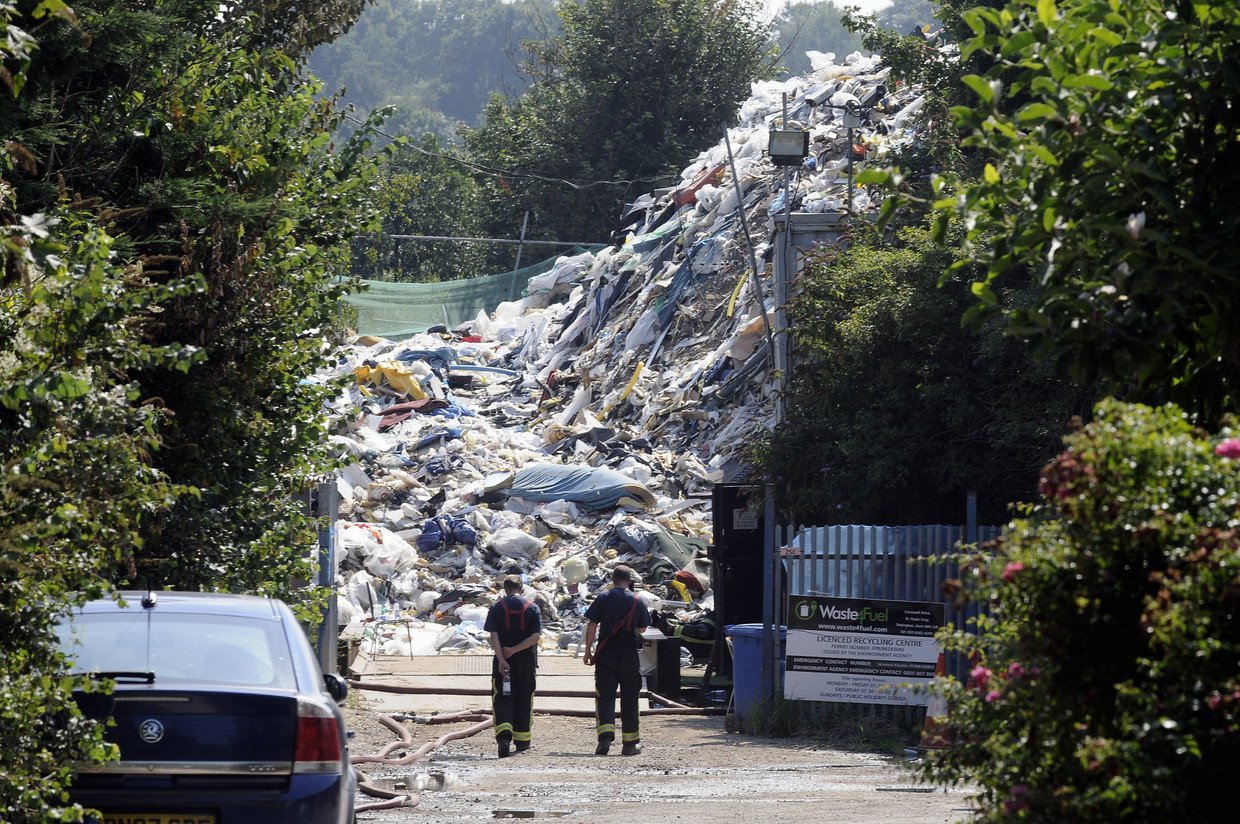Global recycling crisis shows West can’t use poorer countries as dumping grounds

India has followed China’s lead and banned imports of solid plastic waste in an effort to tackle its own environmental crisis — but the move has added to an ever-growing global recycling and plastics crisis.
One year ago, the Chinese government implemented its 'National Sword' policy, which put a stop to the massive flow of recyclable plastic waste from Western countries. Plastic imports to China were down 99 percent in the first year since the new import restriction came into force.
Until the Chinese ban, the US, UK, Germany and Japan were among the biggest exporters of plastic to China. The new rules forced them to look elsewhere to send their plastic recyclables. UK exports to Malaysia nearly tripled, while exports to Thailand were 50 times greater. The US is the biggest plastic exporter to Malaysia, sending 195,444 tonnes between January and July 2018.
Also on rt.com India stops waste plastic imports as China’s ‘recycled commodities’ ban triggers trash crisis in USBut the Chinese and Indian bans have shown that exporting plastic waste is unsustainable — and Thailand and Malaysia, too, have announced bans, not wanting to continue on as the dumping ground for the world’s plastic waste. While the short-term solution to the problem for Western countries has been to find alternative markets, the long-term solution, in the words of UK environment secretary Michael Gove, is to “stop offshoring our dirt.”
The current developments in the field of plastic disposal are likely to put developed nations in a bind, Yoichi Shimatsu, an environmental journalist and a former Tsinghua University lecturer, believes. Plastic waste tends to have a tremendous adverse effect on human health, he warned.

“Organic carbon-based compounds … act as hormone disrupters, which especially interfere with the endocrine systems and female reproductive organs, leaving to complicated disorders and birth defects,” he explained, adding, however, that the proper disposal of plastic waste requires a costly technology involving plasma incineration.
This would make the cost of plastic disposal, which is currently simply shipped off elsewhere, “prohibitive.” However, as an increasing number of countries ban plastic waste imports, the developed world could be left with no alternative but to deal with it at home. There are also other aspects to this problem.
The use of developing countries as dumping grounds for Western waste is "immoral, unethical and unjust," environmental activist Dr. Vandana Shiva told RT.
"There should never have been plastic introduced into economies. We had local, fresh products everywhere. Plastic and the fossil fuel economy that backed it was a handful of industries that gained from it — and then they got everyone addicted to plastic and a throwaway culture," Shiva said.
In the US, the National Waste and Recycling Association (NWRA) recently asked President Donald Trump to raise China's ban as part of trade talks with the Chinese government, slamming what it called the "unrealistic restrictions on imported recyclables" and saying that the ban could lead to the loss of thousands of jobs.
But it’s not quite that simple.
While Westerners dutifully separate their papers and plastics, believing that they will be properly recycled in far off lands, very often that is not the case at all. A Greenpeace investigation last year found that much of the waste sent to Malaysia for recycling is not recycled at all, but burned (adding to air pollution) or simply dumped. The countries the West is sending its waste to are so overwhelmed by it, that it has led to public and environmental health crises that little is ever heard about.
“The international waste trade system itself is broken and based on false assumptions about what really happens to waste,” Greenpeace campaigner Heng Kiah Chun told Eco-Business.
Recycling may be all well and good — if the systems in place work — but real problem, experts say, is over-production of plastic in general. Governments around the world have indeed been moving to reduce the production of unnecessary plastic.
Also on rt.com Japan finds itself buried in plastic waste after China stops importing world’s trashAs well as banning plastic waste imports, India has set a goal to phase out single-use plastics by 2022. The EU agreed to ban some single-use plastics including disposable plates, cutlery, straws, plastic cotton buds and drink stirrers last year, in an effort to combat marine pollution. A whopping 60 percent of the 25.8 million metric tonnes of plastic waste produced in the EU every year is from packaging, much of which is eventually shipped off to be dealt with somewhere in Asia.
But small steps in this direction are not enough, campaigners argue. Shiva said that plastic is just “one symptom of an ecological crisis" that goes hand in hand with the fact that local, sustainable food systems have been “destroyed.”
“If you promote local food where there's a farmers' market — and I go with my cloth bag and pick up the vegetables for the week, there will be no plastic and there will be better food, and there will be less disease — and there'll be less climate change,” she said.
Eventually, plastic could just become literally a problem for everyone on earth even though it was once hailed as a scientific breakthrough, Shimatsu warned.
Plastic is increasingly looking like one of those scientific miracles from the postwar years like nuclear energy, with a downside far worse than any benefit.
Like this story? Share it with a friend!














